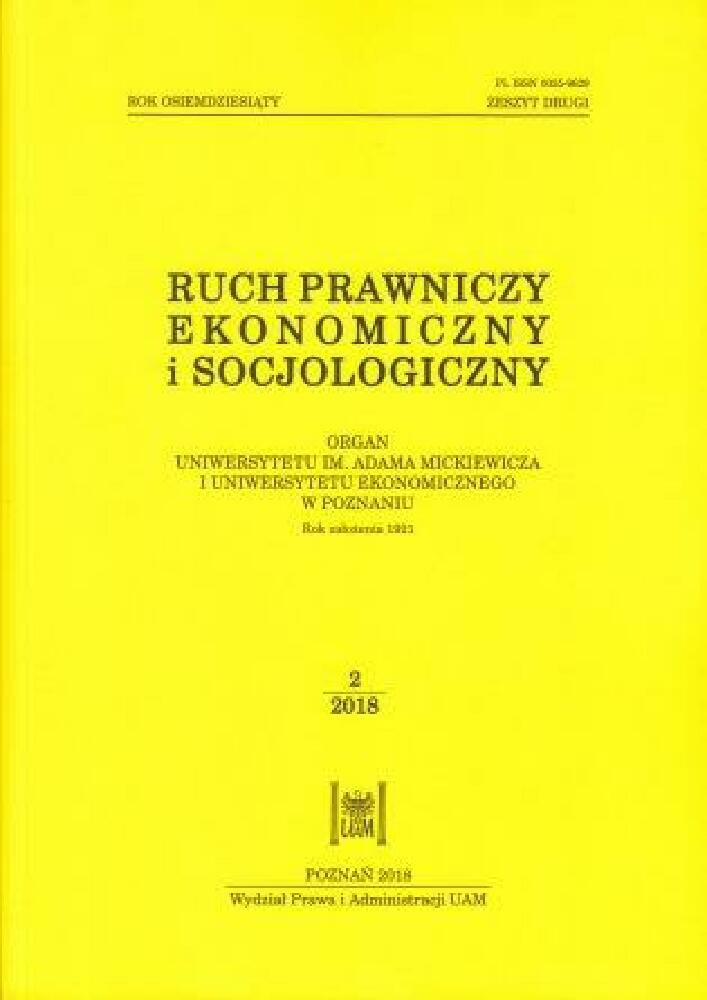Abstract
The unconditional basic income is the income allotted to all members of society individually, without them having to provide work instead. The right to this income and its level are unconditional and independent of the size and structure of households. In addition, unconditional income is paid regardless of the citizens’ income from other sources. The aim of this paper was to conduct a theoretical and empirical analysis of the unconditional basic income, with particular emphasis on the genesis and effects of the implementation of such a mechanism. The research methods used in the paper have been based on literature presenting studies in macroeconomics and economic policy as well as on the data obtained using statistical and descriptive methods published by theOrganisation for Economic Co-operation and Development.
References
Basic Income as a Policy option: Can it add up? (2017), Organization for Economic Cooperation and Development, May: 1–19.
Cercelaru, O. A. (2016), Unconditional Basic Income – Impact On The Economy, Annals of the Constantin Brâncuşi University of Târgu Jiu, Economy Series 3: 118–122.
Chéron, A. (2002), Allocation universelle vs. indemnité chômage. Evaluation quantitative dans un modèle d'appariement, Revue Économique, Programme National Persée 53(5): 951–964.
Davala, S., Jhabvala, R., Standing, G., Mehta, S.K. (2015), Basic Income. A Transformative Policy for India, Bloomsbury Academic, London–New York.
Don, A. (2016), Basic income: a radical idea enters the mainstream, Parliament of Australia, Research Paper Series, November 18: 1.
Fumagalli, A., Lucarelli, S., Maciejewska, G., Marczewski, P., Marszałek, M., Mika, B., Moll, Ł., Szarfenberg, R., Szlinder, M., Ślosarski, B. (2014), Bezwarunkowy dochód podstawowy, Praktyka Teoretyczna 2(12): 1–206.
https://www.mpips.gov.pl [dostęp: 4.10.2017].
Hum, D., Simpson, W. (2001), A Guaranteed Annual Income? From Mincome To The Millennium, Policy Options, January/February: 1.
Kay, J. (2017), The Basics of Basic Income, Intereconomics 52(2): 69–74.
Lehmann, E. (2003), Évaluation de la mise en place d’un système d’allocation universelle en présence de qualifications hétérogènes: le rôle institutionnel du salaire minimum, Économie et Prévision, Programme National Persée 157(1): 31–50.
Munnell, A.H. (1986), Lessons from the Income Maintenance Experiments: An Overview, Federal Reserve Bank of Boston Conference Series 30: 1–258.
Pasma, Ch. (2014), Basic Income Programs and Pilots, Basic Income Canada Network, February 3: 1–14.
Sattelberger, J. (2016), Unconditional basic income: an instrument for reducing inequality?, KfW Development Research, Development in Brief 39: 1.
Tanner, M. (2015), The Pros and Cons of a Guaranteed National Income, Policy Analysis 77: 1–35.
Universal Basic Income (UBI): Everything you need to know, http://www.clearias.com [dostęp: 4.10.2017].
License
Copyright (c) 2018 WPiA UAM

This work is licensed under a Creative Commons Attribution-NonCommercial-NoDerivatives 4.0 International License.




